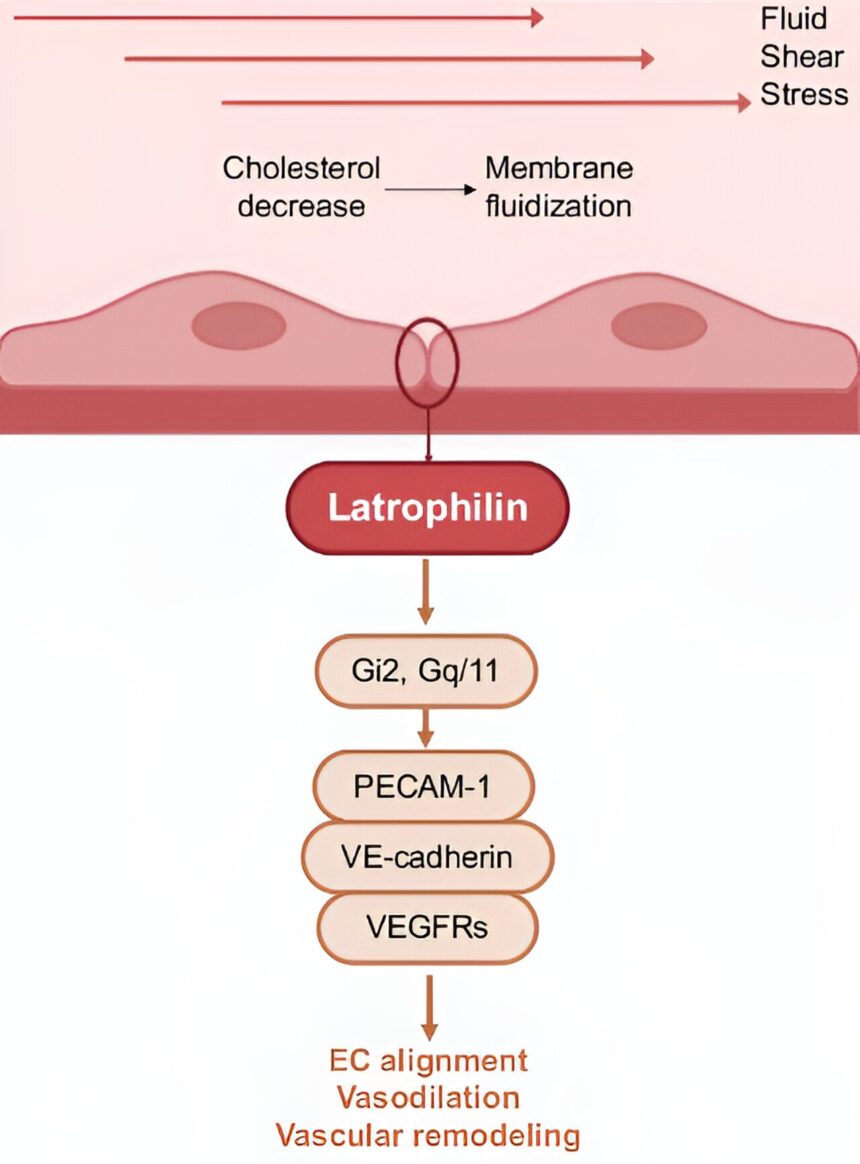Blood flow exerts fluid shear stress on blood vessel walls, influencing vascular development, function, and disease. Yale researchers, led by Martin Schwartz, identified latrophilin-2 as a protein that senses and responds to changes in shear stress. Latrophilin-2 is located on the cells lining blood vessels and is activated by changes in blood flow, essential for vessel development and remodeling. Variants of the gene encoding latrophilin-2 are linked to cardiovascular disease development. This discovery reveals a new pathway for blood vessel response to flow changes, providing insights into cell biology and genetic factors in cardiovascular disease. The study is published in The EMBO Journal.
Source link
Novel protein detects and responds to changes in blood flow
